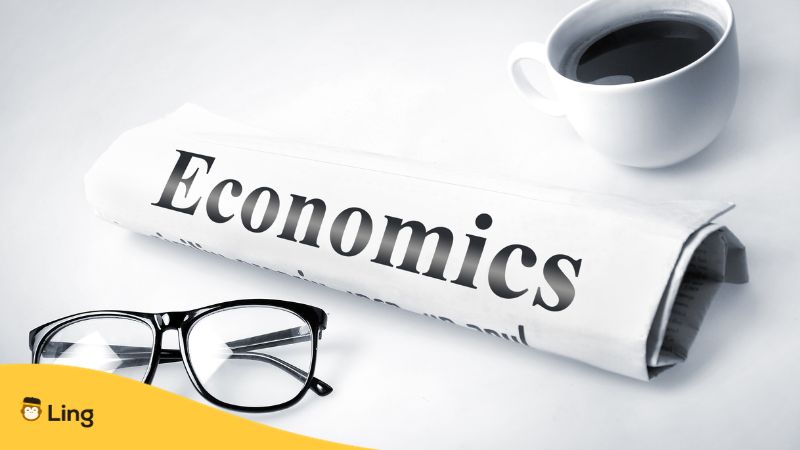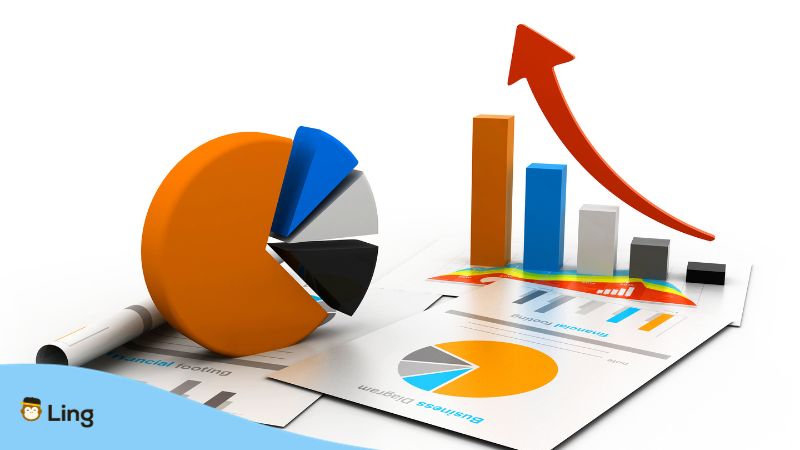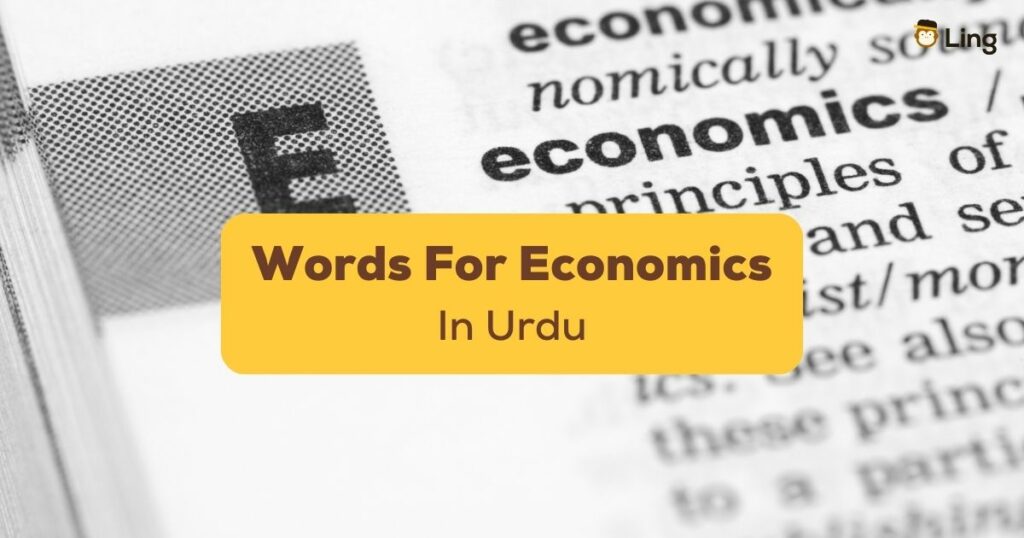Language and economics share a unique bond, often subtly hidden beneath layers of words and numbers. These terminologies serve as vehicles for communicating intricate economic concepts and theories. In this post, we will explore all about them with some Urdu Words For Economics.
So, whether you love learning, business, or exploring cultures, this guide will help you learn all the words you need to know. Get ready! Let’s explore how rupees and markets work in Urdu, the world’s seventh-most-spoken language!
What Is Economics In Urdu?
Economics, or the Urdu equivalent, ‘معاشیات.,’ is all about how we manage and distribute our material resources. Think of it as overseeing your household affairs or domestic management on a much bigger scale. It’s like running a huge family with millions of people!
So, if you want to know more, read on!

Common Urdu Words For Basic Economics
Learning the Urdu language is half the battle when it comes to economics. We have to truly understand what these terminologies mean. So, let’s start by learning common terms with their Urdu Script and Roman Urdu transliteration:
1. Economics (معاشیات – Muashiyaat)
This is the game of money and resources. It’s where everyone is a player. It’s how we use what we have to meet our needs.
2. Supply (فراہمی – Farahmi)
Think of the baker making delicious chocolate cakes. The more cakes he bakes, the more cakes there are to sell. Supply is all about the quantity of goods that businesses are ready to sell.
3. Demand (طلب – Talab)
This is like how you crave that scrumptious chocolate cake from your favorite baker. Demand in economics refers to how much people want a certain good or service. If everyone in your town suddenly discovers the delights of that baker’s cake, well then, the demand for his cake increases!
3. Money (پیسہ – Paisa)
It’s that magic paper that can get you almost anything you want. Yes, even that chocolate cake slice.
4. Exchange rate (تبادلہ کی شرح – Tabadlah Ki Sharah)
This is like a price tag for money itself. It shows how much of one currency you need to buy another. So, if our baker had to pay in euros for French baking tools, he had to know the exchange rate between his rupees and the Euro.
Intermediate Economics Terms In Urdu
Now, let’s advance to some intermediate economics terminologies:
1. Inflation (مہنگائی – Mehngai)
Remember when your beloved chocolate cake would cost just a few rupees? Now it costs more due to inflation. This term means the general rise in the prices of goods and services over time. When inflation hits, it’s like your money is on a diet. It’s only able to buy less and less as time goes on.
2. Deflation (کمی کا عمل – Kami Ka Amal)
This is the opposite of inflation. Think of it as a ‘sale’ in the economy. Generally, the prices are dropping. So, that chocolate cake you love? It could cost a bit less, theoretically. However, deflation isn’t always great for the economy. It’s like a too-good-to-be-true sale. There could be unintended consequences.
3. Gross Domestic Product (GDP) (کلی داخلی پیداوار – Kalie Dakhli Pedawar)
Now, let’s add up the cost of all the goods, like chocolate cakes, and services produced in a country during a certain period. That’s GDP for you. It’s a snapshot showing the size of a country’s economy.
4. Recession (کساد بازاری – Kasaad Bazari)
A recession is like a time when the economy catches a cold. It’s a period when it isn’t performing well. There’s a decline in GDP, employment, and other economically delicious stuff, like our baker’s chocolate cakes, for at least six months.
5. Interest Rate (سود کی شرح – Sood Ki Sharah)
Think of it as the rent you pay for using someone else’s money. So, if the baker needed a loan to buy more baking supplies, he’d likely have to pay interest to the bank.

Discover More Words Urdu Words For Economics
Hold onto your rupees, because we’re not quite done! Here are other words to help you understand economics in Urdu:
1. Market (بازار – Bazaar)
The playground where supply plays with demand to decide what should be priced how much.
2. Investment (سرمایہ کاری – Sarmaya Kari)
It’s a bit like planting a tree. You provide initial resources (money), take care of it (time and effort), and hopefully, it will provide juicy fruits (returns) later.
3. Profit (منافع – Munafa)
The sweet taste of success. It’s the extra money you earn after covering costs.
4. Loss (نقصان – Nuqsaan)
The bitter pill of failure. It happens when expenses munch all of your income and are still hungry.
5. Interest (سود -Sood)
A tiny token of thanks (or sometimes, a big one) given by the borrower to the lender for the loan.
6. Taxes (Tax – ٹیکس)
The share that the government takes from your earnings to run the country.
7. Assets (اثاثہ -Asasaat)
The basket of goodies you own. It could be your car, house, or even those rare Pokémon cards.
8. Liabilities (مقروض – Maqrooz)
All the money you owe. It’s the opposite of Assets.
9. Budget (بجٹ – Budget)
It’s the financial recipe to manage your money. It decides how your income gets divided among different expenses.
10. Trade (تجارت – Tijarat)
The act of bartering goods or services. It’s like swapping your lunchbox contents with those of your friend.
What Makes Urdu Economics Meaning Unique?
Urdu economic vocabulary provides more than just technical terms. It combines local culture and political economy ideas, making it unique. In addition to picking up a new economic word, you get a glimpse of the rich cultural, social, and economic diversity of Pakistan with each term.
Learn Urdu With Ling!
Discover the joy of language learning with the Ling app. From Urdu to Ukrainian, Spanish to Swahili, dive into over 60+ languages and watch your world get bigger with each word you learn!
Whether you’re looking to learn a few phrases for your next trip or get fluent enough to pen a love poem, the Ling app molds to your needs, aims, and learning aspirations. Wait no more!
Download the app from the App Store and Play Store today!



































































